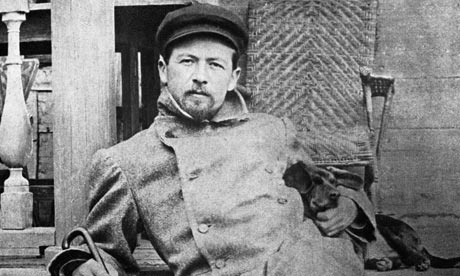In an essay in the Chronicle Review, almost ten years ago, in which I discussed the wastefulness and pretentiousness of most of the academic "research," I quoted from Anton Chekov's "Uncle Vanya." In that play, Vanya goes after the professor:
"All our thoughts and feelings pertained to you alone. Our days were spent talking of you and your work, we were proud of you, we uttered your name with reverence, our nights were wasted reading books and magazines for which I now have the deepest contempt! ... But now my eyes have been opened! I see everything! You write about art, but you understand nothing of art! All your works, which I used to love, are not worth a copper kopeck. You've swindled us!"
Chekov always has a simple way of saying things that are profound. I then wrote:
The passage from Uncle Vanya reminded me of the public, whose taxes make it possible for universities like mine to exist. Would people be disillusioned if they knew that only a few of professors' publications are ever read by more than a handful of other scholars? Would people be disappointed in higher education if they realized that most academics' publications would not sell even for a penny? Would people agree with Uncle Vanya that professors who write but are rarely read and cited are swindlers? Could it be that people already grasp the truth, and that their knowledge is one cause of the decline in the prestige our society accords to faculty members? If I did not teach at a university, would I agree with Uncle Vanya?Life has never been the same ever since Chekov's Uncle Vanya helped crystallize the thoughts that had been fuzzy up until that point. (Though, this approach to research and higher education, and a generally disgusted feeling towards the pretentious faculty colleagues, doesn't help me in the real world!)
The Guardian features an essay about Chekov and his plays, on the occasion of his 150th anniversary of his birth. (ht)
his stories are full of people who espouse views very similar to the above – enlightened misfits, philanthropic gentry, civilised professionals (often doctors like himself) holding a candle for reason, justice and all the rest.The author then notes:
There had been sceptics, agnostics, doubters, questioners of every kind before Chekhov, but perhaps no writer in whom the utter mysteriousness of existence was felt so deeply, or counterpoised by such inexhaustible interest in the teeming variety of forms – human and otherwise – in which it manifests itself. To have found a way of expressing both, with such profligate inventiveness and such apparent ease, was, above all else, the mark of Chekhov's genius; his unsurpassed greatness as a teller of stories.

No comments:
Post a Comment